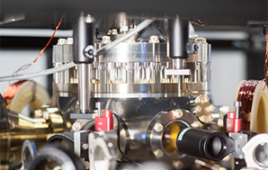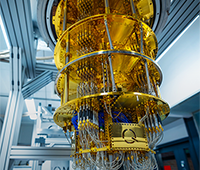 Want to slip a supercomputer in your back pocket? Technology isn’t quite there yet. But there are supercomputers on wheels that you can roll from room to room, supercomputers that can regularly be shipped around the world, supercomputers with no special power requirements, and supercomputers that function well in environments that range from the African rainforest to the Arctic. There are three potential differences between a portable supercomputer and a stationary one:
Want to slip a supercomputer in your back pocket? Technology isn’t quite there yet. But there are supercomputers on wheels that you can roll from room to room, supercomputers that can regularly be shipped around the world, supercomputers with no special power requirements, and supercomputers that function well in environments that range from the African rainforest to the Arctic. There are three potential differences between a portable supercomputer and a stationary one:
- Power requirements: These vary depending on the amount of computing power. Supercomputers are available that are capable of running on a single 15-amp circuit; a UPS voltage regulator can be added for extra protection. Portable supercomputers can be plugged into a standard outlet or into a generator. For now, and the foreseeable future, there are no supercomputers that run on batteries.
- Portability features: Wheels or casters can be added that allow the chassis to be moved by one person. Various types of casters are available, including: stainless steel, rubber, heavy duty and swivel.
- A rugged case: These computers become even more versatile with a ruggedized chassis made of aircraft-grade aluminum (or steel for some applications). The chassis can also include shock absorption features that are custom-designed per payload.
Another option is a custom crate that can include a ramp for easy loading and unloading and even an interior lift. For applications that involve air travel, a pressure equalization valve is installed to maintain the pressure inside the chassis.
As far as price goes, the negligible increase over a comparable stationary high performance computer depends on the degree of portability and ruggedization. While it doesn’t make sense to go with a portable high performance computer unless there is a specific reason; many people who could use them don’t even know they are an option.
The market for portable supercomputers includes organizations that collect and process proprietary information, organizations that need to use supercomputers at multiple locations, and organizations that process data onsite and outdoors. In these applications, portable supercomputers are truly saviors.
David Bollig is President and CEO of Nor-Tech.



